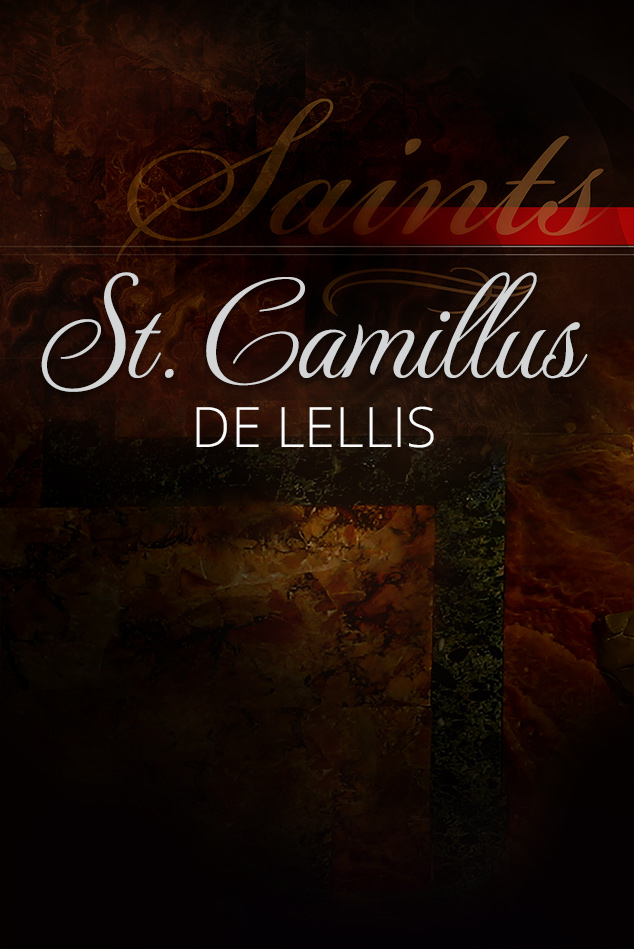St. Camillus de Lellis
THE early years of Camillus gave no sign of sanctity. At the age of nineteen he took service with his father, an Italian noble, against the Turks, and after four years’ hard campaigning found himself, through his violent temper, reckless habits, and inveterate passion for gambling, a discharged soldier, and in such straitened circumstances that he was obliged to work as a laborer on a Capuchin convent which was then building. A few words from a Capuchin friar brought about his conversion, and he resolved to become a religious. Thrice he entered the Capuchin novitiate, but each time an obstinate wound in his leg forced him to leave. He repaired to Rome for medical treatment, and there took St. Philip as his confessor, and entered the hospital of St. Giacomo, of which he became in time the superintendent. The carelessness of the paid chaplains and nurses towards the suffering patients now inspired him with the thought of founding a congregation to minister to their wants. With this end he was ordained priest, and in 1586 his community of the Servants of the Sick was confirmed by the Pope. Its usefulness was soon felt, not only in hospitals, but in private houses. Summoned at every hour of the day and night, the devotion of Camillus never grew cold. With a woman's tenderness he attended to the needs of his patients. He wept with them, consoled them, and prayed with them. He knew miraculously the state of their souls; and St. Philip saw angels whispering to two Servants of the Sick who were consoling a dying person. One day a sick man said to the Saint, "Father, may I beg you to make up my bed? it is very hard." Camillus replied, "God forgive you, brother! You beg me! Don't you know yet that you are to command me, for I am your servant and slave." "Would to God," he would cry, "that in the hour of my death one sigh or one blessing of these poor creatures might fall upon me!" His prayer was heard. He was granted the same consolations in his last hour which he had so often procured for others. In the year 1614 he died with the full use of his faculties, after two weeks' saintly preparation, as the priest was reciting the words of the ritual, "May Jesus Christ appear to thee with a mild and joyful countenance!"
(Taken from Lives of the Saints, by Alban Butler)


 Share
Share